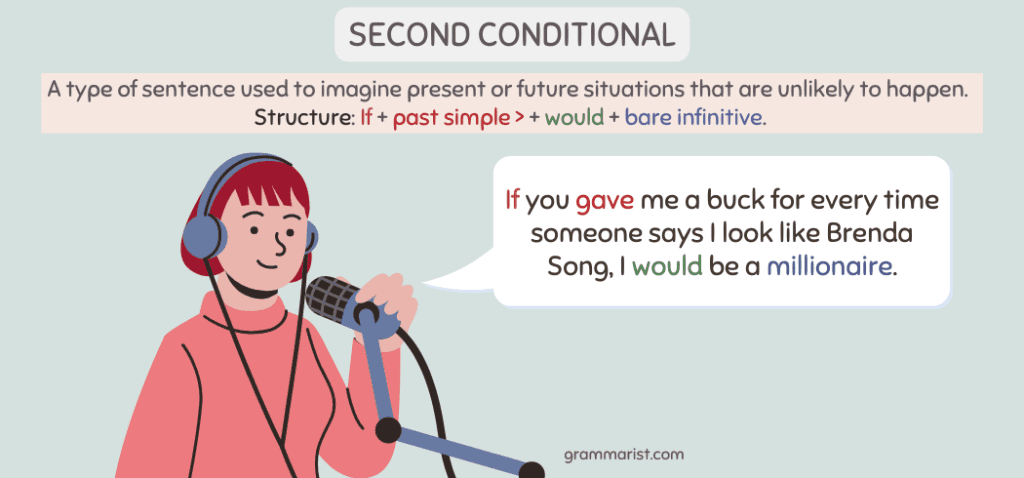In the English language, there are four types of conditional sentence structure. These relate to tenses concerning things that might have occurred, could have occurred, or will occur if certain conditions exist.
The second conditional sentence tense use is often the most confusing to those learning the English language. It is used to express unrealistic actions or situational consequences in the present and future tense.
Let’s review this and then practice its use in three different second conditional exercises.
Second Conditional Sentences Explained

Second conditional tenses are tricky because they deal with untruths that could become a reality if, and only if, certain circumstances exist. However, the probability of those circumstances existing is next to zero.
These sentences deal with the future.
To better understand what a second conditional sentence is explaining, think of it in this manner:
- Use the second conditional sentence to describe dreams concerning possible situations and how you might act if they came true. Also, use this sentence structure to explain imaginary situations.
For example:
- If I had a million dollars tomorrow, I would quit my job.
- If I married a movie star, I would create my own reality television series.
These sentences highlight an improbability (the first clause of the sentence), followed by a clause describing what could be possible if the first clause came true.
How to Structure a Second Conditional Sentence
A second conditional sentence is always constructed using an “if clause” and a “main clause” consisting of a would or wouldn’t statement. You can interchange the order of the clauses as well as long as the sentence structure remains grammatically correct.
For example:
- If I lived on a ranch, I would quit my job and raise horses for a living.
- I’d quit my job and raise horses for a living if I lived on a ranch.
The word “would” ( or wouldn’t) can also be replaced with the word “could” (or couldn’t) when the main clause comes second. “Could” cannot be used when the main clause is placed first because it makes the sentence an actual possibility rather than an improbable scenario.
For example:
- If I lived on a ranch, I could quit my job and raise horses for a living.
Exceptions Concerning the Verb “to be”
When using the verb “to be” in a second conditional tense, the past form is always were, not was, in reference to the subjects I, he, she, and it. Was is often used in informal writing or slang speech, but formal scenarios require were.
For example:
- If I were retired, I would move to Europe and lay on a beach all day.
- If she were my supervisor, I would walk off the job.
Using the Second Conditional Tense to Create Polite Requests
The second conditional sentence structure also lends itself well to polite requests, making this scenario the sole exception to the above rule that they are unrealistic.
For example:
- Would you mind if we borrowed these chairs during lunch?
- If I come after class, would you help me write my essay?